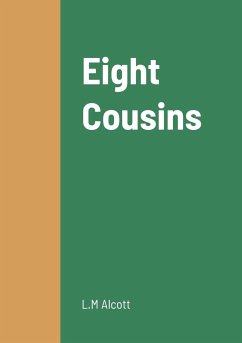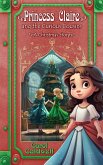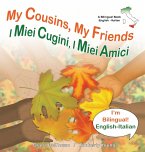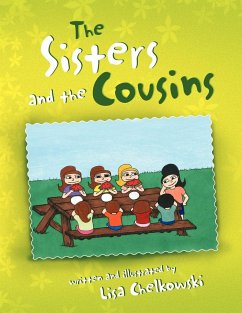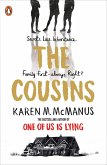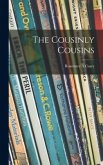Eight Cousins, or The Aunt-HillLouisa May Alcott Eight Cousins, or The Aunt-Hill was published in 1875 by American novelist Louisa May Alcott. It is the story of Rose Campbell, a lonely and sickly girl who has been recently orphaned and must now reside with her maiden great aunts (yet having a guardian), who are the matriarchs of her wealthy Boston family. When Rose's guardian, Uncle Alec, returns from abroad, he takes over her care. Through his unorthodox theories about child-rearing, she becomes happier and healthier while finding her place in her family of seven boy cousins and numerous aunts and uncles. She also makes friends with Phebe, her aunts' young housemaid, whose cheerful attitude in the face of poverty helps Rose to understand and value her own good fortune.Each chapter describes an adventure in Rose's life as she learns to help herself and others make good choices. Rose must define for herself her role as the only woman of her generation in her family and as an heiress in Boston's elite society.Motherless for most of her life, 13-year-old Rose looks to her many aunts, her friends, and the housemaid Phebe as feminine role models. At the same time, she is suddenly confronted with a male guardian and seven male cousins, none of whom she knows well, after losing her beloved father, the only man in her life.Like all of Alcott's books for young people, the story takes a high moral tone. Various chapters illustrate the evils of cigar-smoking, "yellow-back" novels, high fashion, billiards, and patent nostrums, while promoting exercise, a healthy diet, and wholesome experiences of many kinds for girls as well as boys. Alcott uses the novel to promote education theories and feminist ideas, many of which appear in her other books. For example, in choosing Rose's wardrobe, Uncle Alec rejects current women's fashions (such as corsets, high heels, veils, and bustles) in favor of less restrictive, healthier clothing. Although he discourages her from the professional study of medicine, he educates her in physiology, a subject her aunts consider inappropriate for girls, so she can understand and take charge of her own health. Rose is prepared for a career as a wife and mother, yet is taught that she must take active, thoughtful control of her fortune so she can use it and social position to the best advantage of the larger community.
Hinweis: Dieser Artikel kann nur an eine deutsche Lieferadresse ausgeliefert werden.
Hinweis: Dieser Artikel kann nur an eine deutsche Lieferadresse ausgeliefert werden.

